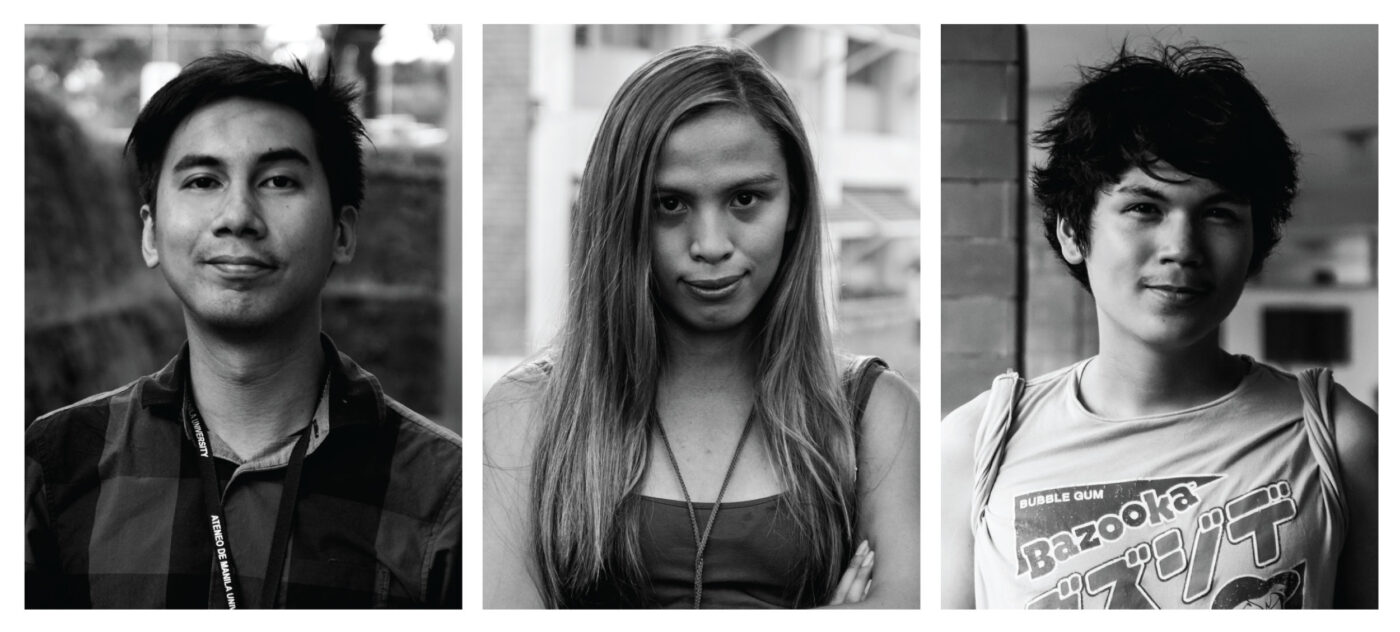On the eve of the 21st Metro Manila Pride March last June 27, participating lesbian, gay, bisexual, and transgender (LGBT) and civil society groups were busy preparing. More than the bad weather, they were anticipating the possibility of backlash from groups who had picketed pride parades before.
But the news of the legalization of same-sex marriage across all of the United States gave them something positive to talk about, at least for a while.
Based on a survey conducted by Pew Research Center in 2013, the Philippines is among the top 10 countries in the world that are most accepting of homosexuals, with 73% agreeing that homosexuality is acceptable.
The country’s LGBT sector also has more political presence than its Southeast Asian neighbors. Ang Ladlad, the only LGBT party-list in the world, was granted accreditation by the Philippine Supreme Court in 2010 after being denied twice. Accreditation means that the group may have a chance at representing LGBTs in Congress.
Still, it is not all rainbows, as Red Tani, founder of pro-secularism group Filipino Freethinkers (FF), said in a FF podcast a week after the parade. Although surveys and political participation show that the country is “gay-friendly,” it does not mean that Filipinos are ready to accept homosexual unions. Rappler reports that 7 out of 10 Filipinos oppose same-sex marriage, based on a survey conducted by Laylo Research Strategies in May.
Not all rainbows
The Commission on Human Rights reported 141 cases of LGBT abuses in 2013. The following year, in November 2014, the alleged murder of transgender woman Jennifer Laude by a visiting US marine made headlines. The ongoing case generated discussions online, with many vitriolic comments expressed against Laude.
“We [the Philippines] always rank well in indices on tolerance with LGBT and women’s rights, but when I read these comments it reveals that we’ve got a long way to go,” observes sociologist Nicole Curato, PhD, in another FF podcast.
In a conservative country where the Church remains the most trusted institution, many LGBTs are generalized into stereotypes. Gays are viewed as effeminate, often wont to work in beauty parlors and the entertainment industry, and are even often blamed for the spread of Acquired Immunodeficiency Syndrome or AIDS. Lesbians must be “butch” or masculine, even binding their breasts to fit in. There is even less discussion about bisexuals and transgenders, the latter often shamed for not being happy with his or her “God-given” gender.
Many poor lesbians, bisexual women, and trans men (LBTs) not only suffer from oppression for being sexual minorities, but also for being “born women,” according to Anne Lim (AB DS ’00), founder of GALANG Philippines, a non-government organization that focuses on urban poor LBTs. Lim, also the group’s executive director, said that many urban poor LBTs are rejected by their families for their sexual orientations.
As Curato puts it, “more than an issue of rights, it is an issue of dignity.”
“The sad reality is that the quality of discourse concerning the LGBT community has remained dismal. They are dismissed as abominations, sinners, and worse, harbingers of divine curse,” affirms Ateneo Development Studies Program Director Jayeel Cornelio, PhD, in a Rappler article written early July.
Cornelio calls this a case of moral panic or “collectively shared anxieties over an issue or group perceived to challenge social order.”
And in the Philippines, the exclusion of sexual minorities governs the social order.
Institutionalizing change
“Exclusion arises, not necessarily from the phrasing of the drafts, but from the implementation on the ground,” reports GALANG in its 2013 audit on social protection policies concerning sexual minorities.
The report states that policies such as the Solo Parents’ Welfare Act of 2000 and the Urban Development Housing Act of 1992 are technically gender and sexuality neutral, but “implementation is often rife with heteronormative assumptions, restricting the access of sexual minorities to solo parent benefits and decent housing in resettlement areas.”
For example, GALANG encountered lesbian mothers whose households were not listed and recognized by the National Housing Authority as “families.” Being headed by “same-sex partners,” they were deprioritized in relocation.
For GALANG and its partners, the passing of a more inclusive Anti-Discrimination Bill is necessary to address the problem. The group has been working for a provision on non-discrimination on the basis of sexuality since the start of its work in LGBT advocacy.
Lim served as a resource person in a public hearing in Congress regarding amendments in the proposed bill, which is inclusive of only lesbians and gays. The group also sends representatives to sex and gender awareness forums sponsored by vocal supporters such as Senator Bam Aquino.
“We believe that the Philippine Anti-Discrimination Bill has an excellent chance of getting passed in the next 10 years,” says Lim. “At the minimum, a large part of the country will be covered by local anti-discrimination measures that are similar to those that are currently in effect in Quezon City, Cebu, Davao, and Bacolod.”
But ultimately, GALANG believes that information must start at the grassroots. In its focused group studies, the group observed that grassroots constituents are not equipped with tools to defend themselves against heteronormative bias.
For this reason, GALANG has made “Frequently Asked Questions” pamphlets in the vernacular, which they use for grassroots orientations.
According to Lim, it is important for grassroots LBTs to “develop critical thinking to understand their situation of vulnerability and marginalization, and push for structural change.”
“It is important to remind mainstream society that sexual orientation and gender identity and expression–like race, color, religion–are merely some of the aspects that make up a person’s identity,” she adds. “[Just like] straight people, LGBTs are not defined by what is between their legs or by whom they desire.”




